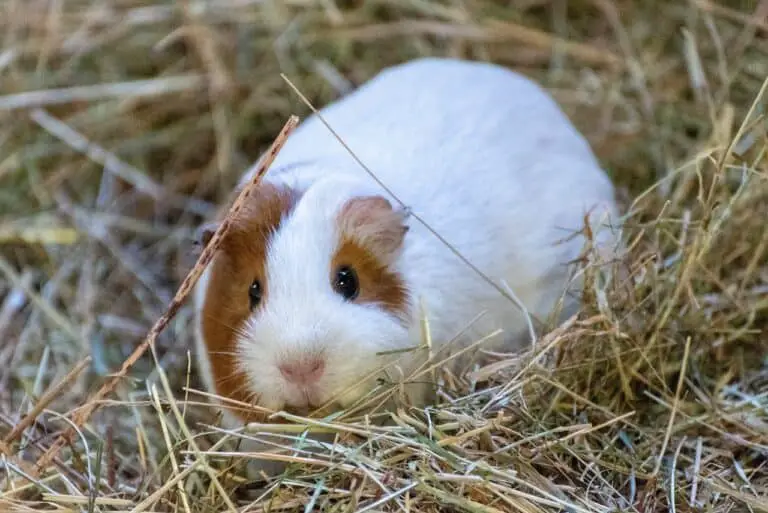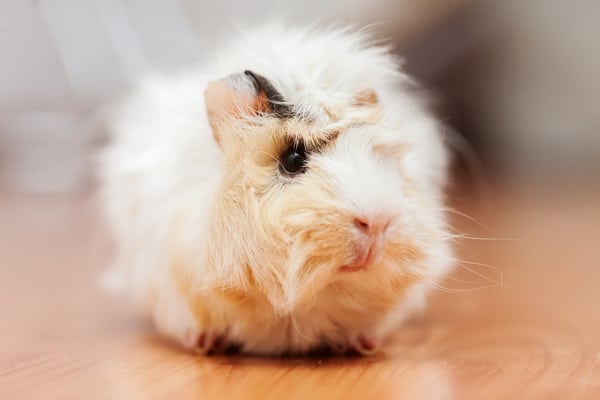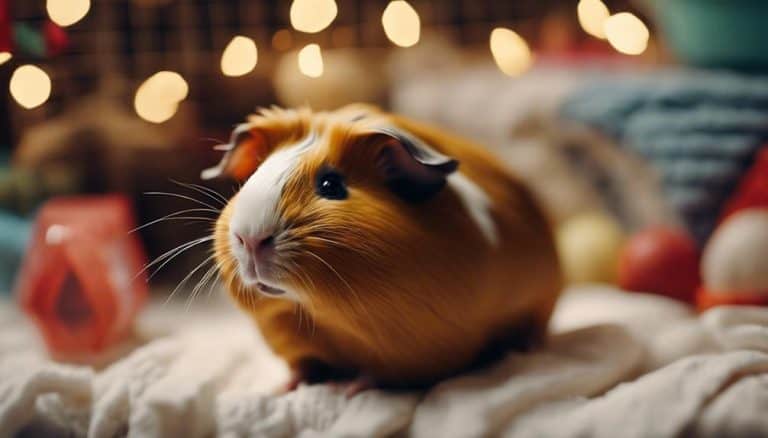The Ins and Outs of Guinea Pig Pregnancy and Prenatal Care
Pregnancy in guinea pigs is a significant event, and it is essential to take specific measures to ensure the health of the mother and the litter.
Due to the size of their litters, guinea pigs have a much more significant nutritional requirement during pregnancy than most other rodents. Supplementing their diet with high-quality hay, fresh vegetables, and fruits is essential to maintain their health. Additionally, providing ample space during the pregnancy and ensuring that they have suitable bedding and nesting material is crucial, as guinea pigs can become stressed during this time.
Pregnant guinea pigs should not be disturbed, as this can lead to complications such as the delivery of stillborn pups or an extended labor period. In conclusion, taking adequate care of a pregnant guinea pig is essential to ensure a healthy pregnancy and successful delivery.
When Are Guinea Pigs Sexually Mature?
Guinea pigs reach sexual maturity at different ages depending on their gender. Female guinea pigs can become sexually mature as early as four weeks of age, while male guinea pigs may take a bit longer, becoming sexually mature between four and six weeks.
Thus, it is important to separate male and female guinea pigs at around the four-week mark to prevent unexpected litters. For both male and female guinea pigs, it is crucial to wait until they are at least six months old before allowing them to breed. This can prevent health issues and ensure a smoother pregnancy and birth for the female.
Keep in mind that guinea pigs can reproduce quickly and may give birth to multiple litters in a year, so it is best to spay or neuter them if they will not be used for breeding purposes.
How Do You Know if Your Guinea Pig is Pregnant?
If you suspect that your female guinea pig is pregnant, there are a few physical signs to look out for. Firstly, her abdomen may appear larger and rounder than usual. You may also be able to feel small, hard lumps inside her stomach, which are her developing babies.
Additionally, pregnant guinea pigs may experience reduced appetite, lethargy, and weight loss. It is important to ensure that your guinea pig’s diet is supplemented with plenty of vitamin C, as this can help support her pregnancy and prevent complications.
If you are unsure whether or not your guinea pig is pregnant, it is always best to seek advice from a veterinarian who will be able to provide a professional diagnosis.
Pregnant Guinea Pig Stages
Pregnancy in guinea pigs is a complex and delicate process. A female guinea pig or sow can enter into the pregnancy stage at any time of the year, and the gestation period usually lasts between 59 and 72 days. During pregnancy, it is essential to provide the pregnant guinea pig with an adequate supply of vitamin C, as guinea pigs cannot produce this vitamin themselves.
Regular visits to a veterinarian or vet are important to ensure the sow’s health and to monitor her for any potential complications. One of the most common complications during pregnancy is pregnancy toxemia, a metabolic disorder that can cause discomfort, decreased appetite, and lethargy in the guinea pig.
If any signs of pregnancy toxemia are noticed, a veterinarian should be consulted immediately. Once the pregnant guinea pig reaches full term, she will give birth to a litter of young guinea pigs, or “pups,” which will require immediate care and attention.
What Should I Do If My Guinea Pig is Pregnant?
If you suspect that your female guinea pig is pregnant, it’s essential to take proper care throughout her pregnancy to ensure a healthy delivery. The first thing you should do is take her to a vet who specializes in small animals for an examination.
A vet can confirm whether your guinea pig is pregnant or not and provide advice on how to care for her during her pregnancy. If your guinea pig is pregnant, your vet may suggest an x-ray to count the number of pups in her litter. When it’s time for your guinea pig to give birth, it’s essential to ensure that she has a safe and comfortable environment.
Most female guinea pigs can give birth naturally, but close monitoring is necessary. Always provide her with fresh food and water and ensure that she gets enough exercise.
Overall, understand the many aspects of pregnancy in guinea pigs and provide the possible care throughout the process.
How long is a guinea pig pregnancy?
The gestation period of a guinea pig is approximately 70 to 72 days. During this time, the pregnant guinea pig can be observed gaining weight and becoming less active. Once the gestation period is over, the guinea pig will give birth to a litter of young ones.
The litter size can range from one to ten piglets, but the average size is usually three to four. After birth, the mother guinea pig will take care of her young ones, nourishing them with her milk until they are old enough to consume solid foods.
Guinea pig pregnancy can be a stressful and challenging time for both the mother and owner. Therefore, it is crucial to provide proper care, nutrition, and a comfortable environment during this time.
Is There Anything I Can Do If My Guinea Pig is Pregnant?
If you notice that your guinea pig is pregnant, there are a few things you can do to ensure a safe and healthy birth. The first thing you should do is take your guinea pig to a veterinarian to confirm the pregnancy and make sure that your guinea pig is healthy enough to give birth naturally.
Your vet may also be able to give you advice on how to prepare for the birth and what to expect. It’s important to provide your guinea pig with a large, comfortable cage and a quiet space to give birth.
You can also provide extra food and water to support her during this time. If you notice any signs of distress or difficulty during the birth, it’s important to call your vet right away for assistance. With proper preparation and care, your guinea pig should be able to give birth naturally and safely.
What should I feed my pregnant guinea pig?
It is important to ensure that your pregnant guinea pig receives a balanced and nutritious diet. Providing good-quality hay, fresh vegetables such as bell peppers and leafy greens, and a small amount of fruits is essential during pregnancy.
Guinea pigs need a lot of vitamin C in their diets, which they cannot produce on their own, so it is crucial to feed them a supplement of vitamin C-rich fruits and vegetables. However, too much fruit or a diet low in hay can cause digestive and dental problems for your pregnant guinea pig, so it is important to monitor their food intake carefully.
Pregnant guinea pigs may also require additional nutritional supplements or special dietary considerations, so consulting with a veterinarian is always recommended to ensure a healthy and successful pregnancy.
How Many Babies Do Guinea Pigs Have?
Guinea pigs are known to be very social animals and when they mate, they can have many babies. Guinea pigs usually give birth to a pup, also known as a baby guinea pig, after a gestational period of around 59 to 72 days.
The number of baby guinea pigs that a mother can have in one litter differs from one guinea pig to another. Generally, a guinea pig can have between 1 to 8 pups in one litter. However, it is more common for a guinea pig to have around 2 to 4 pups per litter. It is essential to prepare for the arrival of new pups by ensuring that the mother guinea pig is well-fed and has a cozy nesting spot.
As the pups grow, it is necessary to monitor their growth and ensure that they have a proper diet to develop into healthy and happy adult guinea pigs.







